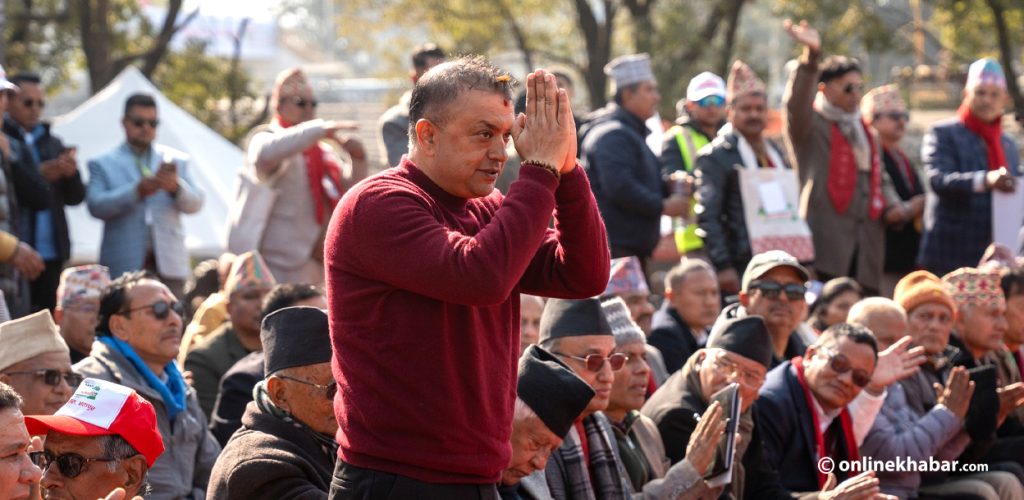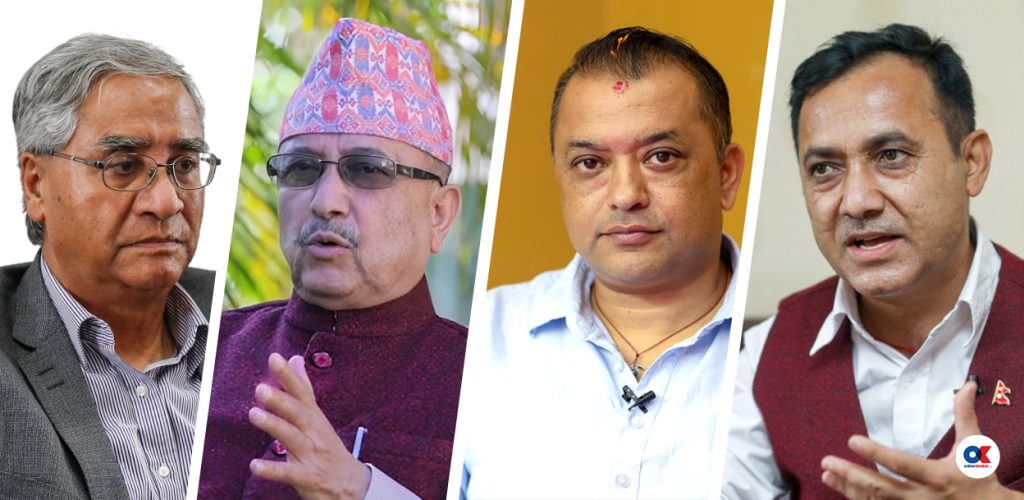
After walking around two minutes from Basantapur Durbar Square towards Pyaphal, you come across a cluster of small shops. Among the shops that sell musical instruments, an old one stands out.
It is on the ground floor of an old quake-damaged building, which now needs support from wooden beams, that Raju Chaudhary’s shop is located. It’s a 6X6 ft workshop cum shop where Chaudhary makes tablas, madals, pacchima, dhimey, drums and a host of other local instruments.
 Twenty-four-year-old Raju came to Kathmandu from Chitwan earlier this year. Like many others, he came to the capital looking for better opportunities, and to satiate his love of travelling.
Twenty-four-year-old Raju came to Kathmandu from Chitwan earlier this year. Like many others, he came to the capital looking for better opportunities, and to satiate his love of travelling.
Raju got into this business following in his brother’s footsteps. His older brother, who has been in the drum-making business for the last 12 years taught him everything that he knows now.
At the workshop, raw materials required to make traditional Nepali drums are scattered all over. He, along with several helpers chamfer wood, cut goat skin and tie bamboo ropes before the drum finally takes its shape.

Raju lives in Dallu and comes to the shop everyday at 7 am. He works the entire day, and goes home only at 7 pm. “I didn’t finish my education. I have a wife and a daughter to support and this is the only way I know how to,” he says while using the khari (polish) to tune a tabla he’s working on.

Bishnu Lama, a resident from Dhading living in Sundhara shares similar thoughts as Raju. They both work at the shop with a few other helpers and when asked about what gives them joy and satisfaction, they both echoed in agreement: “When every festival procession passes by our shop, we are happy that we are a part of it through the drums that we make.”
























